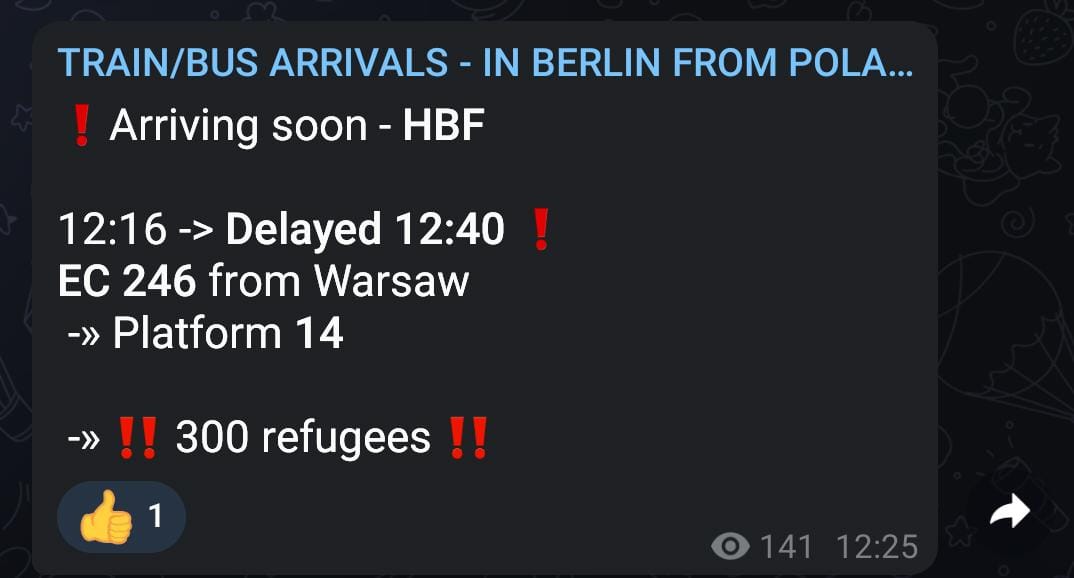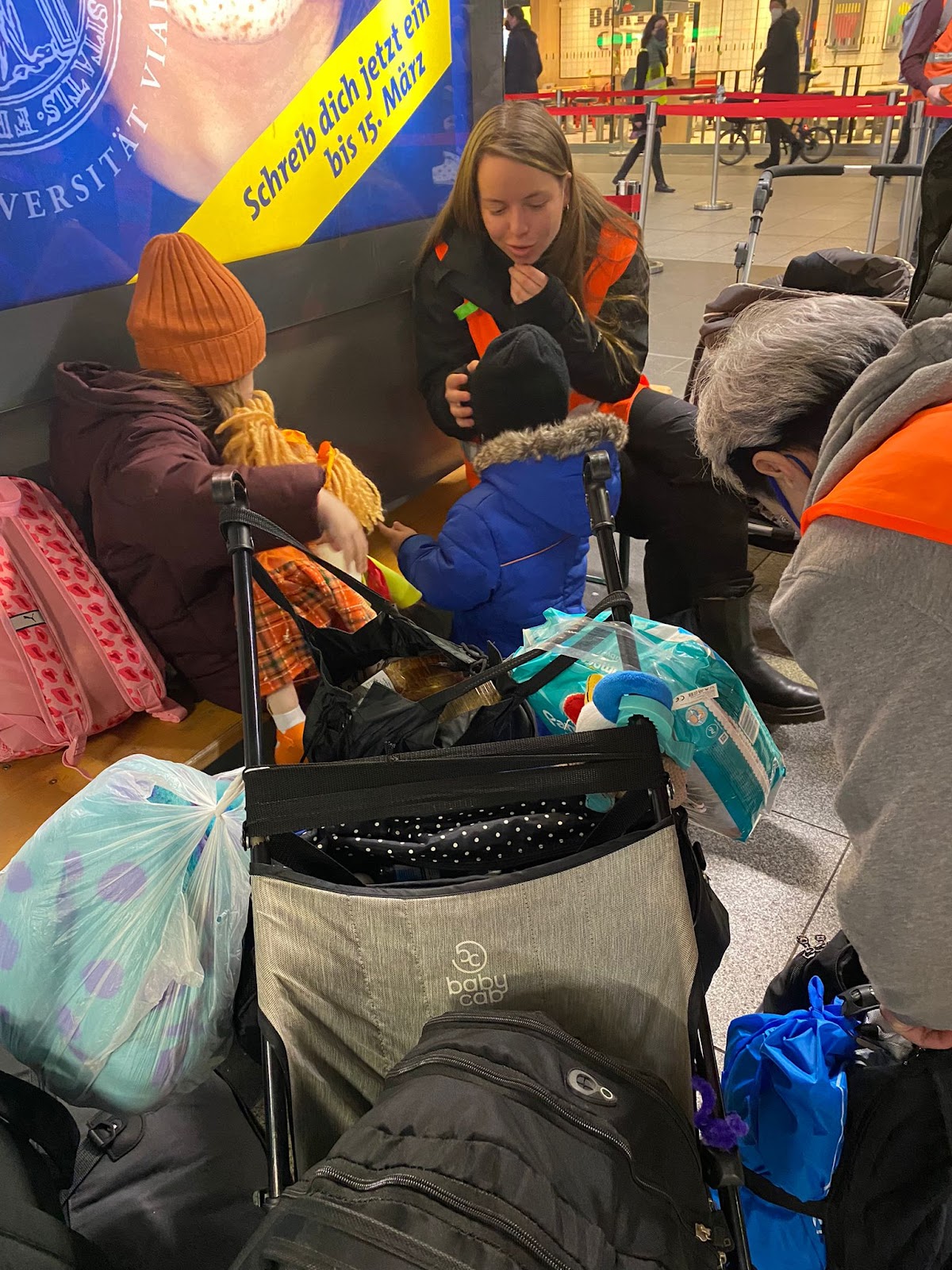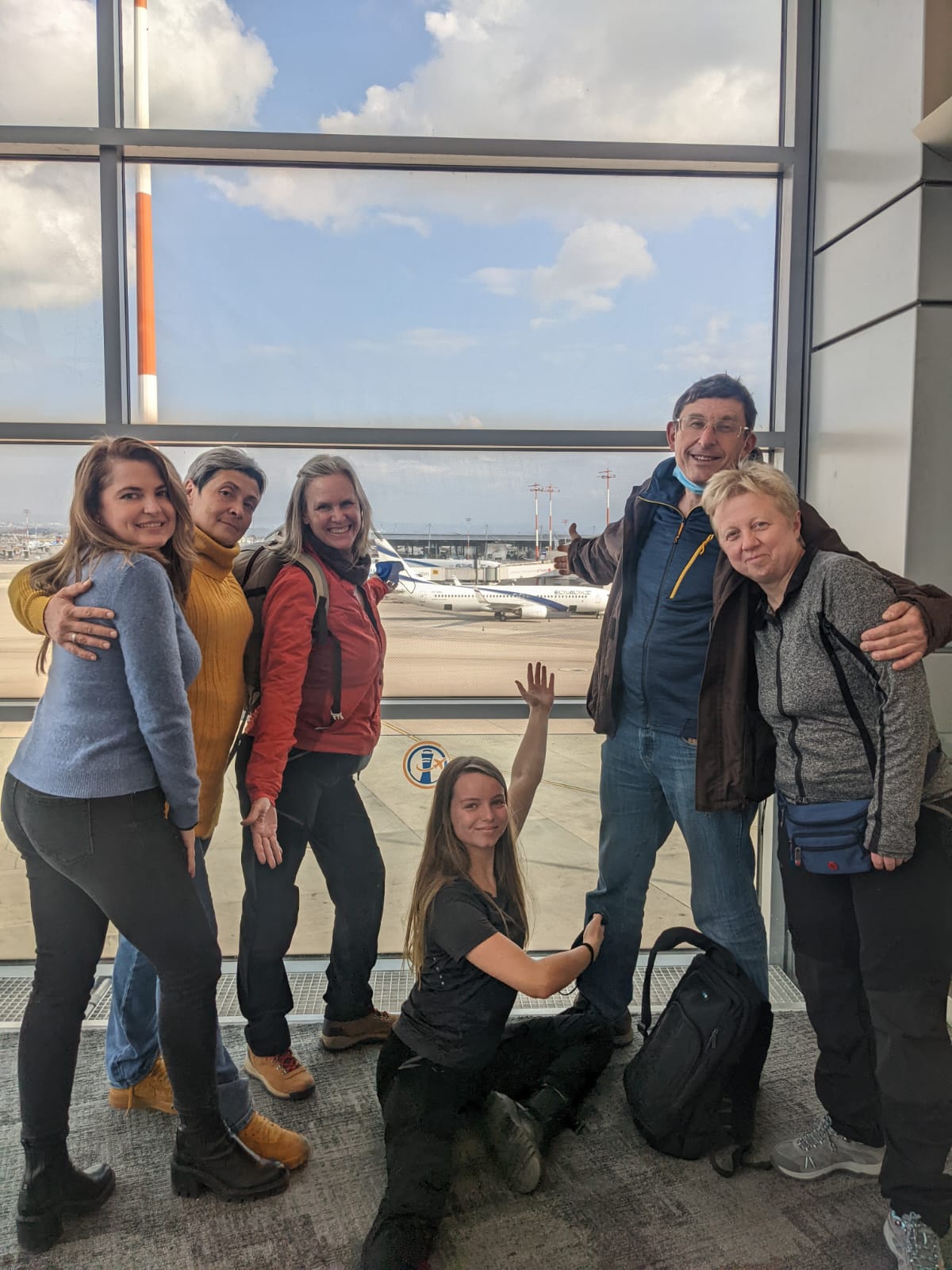What did our teams do?
Our two Refugee Relief teams were sent to Berlin with a mission to help the thousands of refugees escaping the war. We also sent a small team to Poland to assess the needs there and help for a week. They extended their stay by another week and determined that there is tremendous need there. However, we will concentrate mostly on the Berlin Relief teams in this update, since we have great first hand information to share. Our teams in Berlin were sent to the Central Train Station. As the refugees entered the train station either by train or bus, they knew to search for the ORANGE vests of the volunteer translators. In the beginning there weren't many orange vests in the station (yellow vests were English speakers and were typically German locals), but over the course of time, more orange vests came to volunteer. Many refugees made a straight line to our volunteers searching for help to get to their next location, if they had one.
Our teams, quickly learned how to help navigate the systems and options that the German government was supplying. For those who had no place to go, a small housing city was setup at the old airport and allowed them to stay for a few nights. They also pulled in sleeping cars for a few hours at night into the train station. Our staff in Germany was very busy taking care of the needs of the many refugees already in the city, as well as finding housing solutions for many coming to Germany. We'll provide just one example. Our UK staff member, who really coordinated everything for our Berlin Relief teams, told us this example. Our first Berlin Relief team, Jason calls them Team1, met a mother and child who needed a place to stay. She called around and found someone willing to put them up for a month, because our German staff had made many phone calls searching for housing using their vast congregational and personal connections. The family had some challenges to overcome and it didn't look like they would be able to help. But in the end the family ended up driving three hours to Berlin in order to collect this mother and her child, then drove another three hours to take them home. God, arranged many of these connections during the time our two teams were there. Although most people did have a place to stay or a destination, it was amazing to see our team help those in great need.

The trains kept coming.
There are 16 platforms on two floors and our teams greeted the refugees everywhere, helped them get local sim cards so that they could communicate with loved ones, helped them get food in the dining area, helped them transit to their next location or even helped them get help trying to find their next destination. When our teams met these women, children and elderly who were running from the violence, many just needed someone to pick them up and help them emotionally. One particular woman, was so distraught by days of travel with her children that the yellow vests (English and German speaking volunteers) wanted to get her a psychological evaluation. She was headed to her sister's house just two hours away by train. But after four days of tireless travel, all she could think about was getting her children bathed and in bed. Janice was able to calm her down and get her to think through her options. It was actually when Janice started playing with the kids that there was a shift. She the woman saw the kids laughing and smiling, she calmed down. She took Janice's advice even asked Janice if she would be willing to stay with her until her train left for her sisters, which of course she did.
The significance of the relief teams.
One of our staff, who has extensive experience working in Aid and Relief programs, explained something that was very helpful for our team. It's a kind of metaphor.
There was a man walking with his grandson along the beach when they saw millions of starfish stranded. The grandfather picked up one and threw it back into the water. The grandson said, "Grandfather, with all of these millions of starfish. How does helping that one make a difference." The grandfather replied, "it made a difference to him."
As those trains pulled in and these refugees searched for the orange vests, they were looking for help. Our team members were there to help each person or group feel loved and appreciated. The impact that our team had was on the individual level. For each and every person that they were able to help, it made a difference for them.
We sent two teams, each for one week. The first team hit the ground running and they spent a lot of time carrying bags between the platforms and chasing down trains to make sure the people got to their next destination on time. The German government was providing train and bus travel for free for anyone with a Ukrainian passport. But they needed help because many just couldn't manage anymore. Can you imagine traveling on foot, train and bus for four or five days straight with little sleep and dragging infants and toddlers along the entire time? They were at the end of their rope. Our teams, gave the kids toys and played them them, giving the moms and grandmothers a much needed break and bringing a smile to these children's faces, possibly for the first time in days.
They are home!
Our first team arrived home on March 18th and our second team returned on March 25th in the early evening. Team2, Janice's team, really bonded during this trip. Each member had a special ability and gifting that God used during the time. Our nurse, was bold in sharing the love of God with people. Our pastor was the entertainer of the children. Our dancer, was the spark that lit up the eyes of every child she met, there was our IT expert, and one of our volunteers was so knowledgeable that they asked her to man the refugee information booth for a few hours. All nine of Janice's team members really excelled during this short ministry time.
So what now?
The need hasn't ended, although it seems like the flow of refugees headed to Berlin has slowed somewhat. There is now a growing need here in Israel. Our ministry has plans to help the refugees that are coming to Israel by providing practical and long-term help. As you can imagine, any humanitarian aid we provide is always a free gift with no strings attached. We believe this is the model that Yeshua (Jesus) gave us to follow. We also know that we provide the help because of our love for the Lord and our desire to serve him by serving others. We hope that through these acts of kindness, God will reveal himself to these dear people and we want make sure that they know our help isn't contingent upon any kind of religious coercion. We are writing this explicitly, because we have been accused of exactly the opposite in several newspaper articles in the Jewish press lately. Of course it is the anti-missionary organizations who have been contacting Jewish circulations in order to promote their anti-missionary agenda. Despite the opposition, we will not change our mission or our methods. We will continue to do what we have always done, to faithfully share the Gospel with those who desire to hear and to do so in a loving and caring way, just like our Savior showed us.
Are we planning to send more teams?
Yes. Another team is leaving this Saturday morning. They will go to Poland, where there is a lack of manpower. They will serve in two locations and this team will arrive in phases so that there will be overlap on the ground. They will be involved in cooking hundreds of meals (probably thousands of meals) and helping in many other practical ways. The is much to continue to be praying for in the refugee crisis. Many of these dear people have not heard from their families back home. They don't know if their houses, apartments, offices and schools are still standing. Please continue to lift up the refugees in your prayers.





